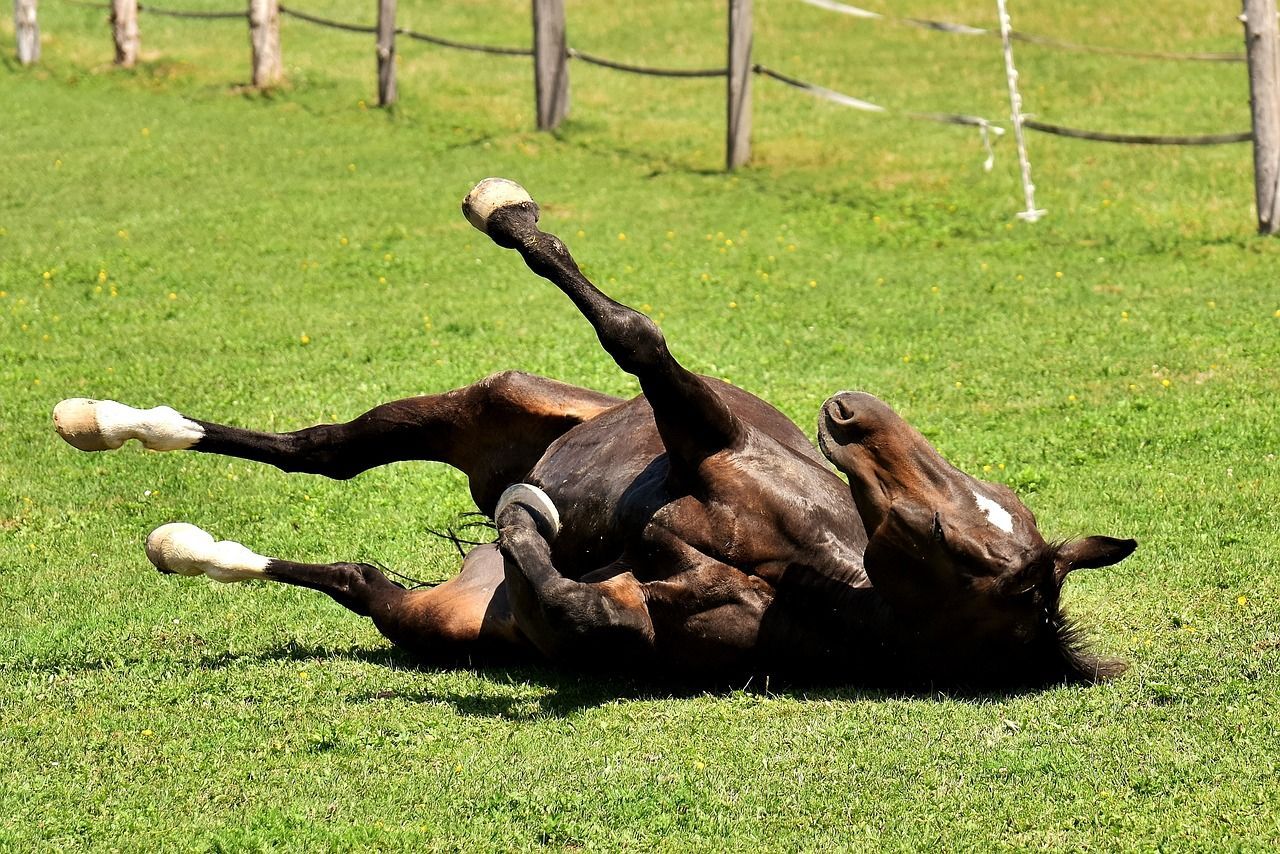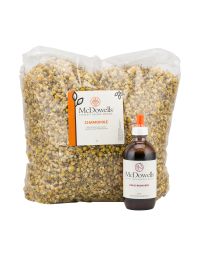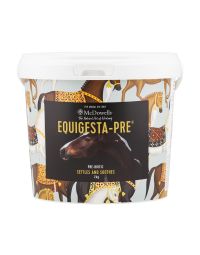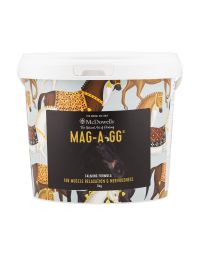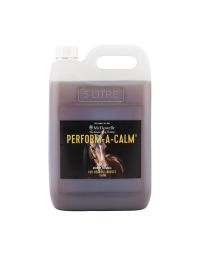Colic in horses is one of the most feared of conditions because of the dramatic way colic can spiral downward into a life threatening condition so quickly. Obstructive colic is the worst and scariest to deal with because we have no way of knowing what the causal factor is unless the horse dies and an autopsy is performed...
Most horse owners have experienced at one time or another their beloved horses colicing - usually the vet is called out, the horse given a paraffin drench or an anti-spasmodic, the horse is walked around until he passes manure and is eating and drinking with good gut noises being heard and everyone breaths a big sigh of relief and no one is really the wiser as to what caused the problem. Usually the horse is wormed again just to make sure (a practice I am against after trauma to the gut!)
Usually you will find an enterolith (preventable with a herbal detoxing), or compacted dry roughage and necrotic tissue (because the gut had been deprived of blood supply for a few days leading up to the fatal colic) tumours or foreign items that have inadvertently ended up in the horses GIT. Worm damage (particularly form bots) is another cause. A twisted bowel or telescopic bowel is often what ends the horse’s life, as it’s very difficult to correct these problems once the situation has turned from bad to worse…
Most colic events are usually from poorly designed diets or management. Overly anxious horses are at risk in certain circumstances because they can stop eating and drinking for significant periods, which creates opportunities for feed to be ingested with minimal fluid causing compactions of feed as it is too dry to pass through the GIT easily.
Greedy horses can do the same as they can gulp down feeds into a nervous and tight gut, the same outcome of pain and spasm occurring. Horse with a history of digestive upsets are also at risk.
Symptoms of colic
Most horses display some combination of the following symptoms:
- Frequent pawing: Horses with colic often paw at the ground repeatedly, especially near their belly. This behavior is an indication of discomfort or pain.
- Rolling or lying down: Colicky horses may repeatedly roll on the ground or lie down and get up frequently. They may also stretch out on their sides in an attempt to alleviate the pain.
- Sweating and increased heart rate: Horses experiencing colic often sweat excessively, even when the weather is not warm. They may also exhibit an elevated heart rate, which can be felt by placing your hand on their chest.
- Restlessness and agitation: Colicky horses may show signs of restlessness, such as constantly moving around their stall or paddock, kicking at their belly, or looking at their sides.
- Loss of appetite: A decreased or complete loss of appetite is a common symptom of colic in horses. They may show disinterest in their usual feed or hay.
- Absence or decreased passing of manure: A horse with colic may exhibit reduced or no passage of manure. They may strain to defecate or pass only small amounts of dry feces.
- Distended abdomen: In some cases, colicky horses may have a visibly distended or bloated abdomen. However, this symptom may not always be present, especially in mild cases.
- Pawing at the ground: Horses experiencing colic often paw at the ground with their front hooves, particularly in an attempt to relieve pain in the abdominal area.
It's important to note that these signs can vary depending on the severity and underlying cause of colic. If you suspect your horse may have colic, it is crucial to contact a veterinarian immediately for an accurate diagnosis and appropriate treatment.
Prevention is the best cure
A well designed natural whole food diet with natural foraging is the best. Herbal support is advised for the anxious horses (particularly chamomile – a natural anti spasmodic and aids a comfortable peristalsis) and horses that are prone to general digestive upsets. Make sure hay is palatable and able to be chewed up well, checking your horse’s teeth helps in this processing.
Magnesium is a good supplement to give regularly. We have a product called Mag-A-GG Calming Formula - a combination of Magnesium oxide, brewer’s yeast, chamomile and dandelion specially formulated to assist in muscle relaxation and nervousness.
Keeping the gut filled with appropriate roughage and water is essential. Fasting can be very dangerous in some situations, and a horse should never be without out food or water for more than 12 hours.
Stress
Competition and travel stress creates the highest risk - so measures must be taken to ensure that your horse’s diet during travel and water intake is kept up. Again chamomile and nervous system herbs are ideal, as well as the Bach flower rescue remedy is very useful.
I have also found that therapeutic touch- like T-Touch and Bowen therapy, very useful when dealing with the overly anxious and hyper-vigilant horse.
Remedies to have on hand at home
Chamomile flowers - to be given as a tea.
Colic Recovery tonic - Black Cohosh, Chamomile, Dandelion, Ethanol, Fennel, Liquorice, Slippery Elm, Dr Bach™ Flowers; Agrimony, Chestnut Bud, Rescue Remedy, Walnut.
McDowell’s Travel Well Mix – for long distance protection from travel sickness and stress.
In conclusion, whilst we can’t protect our horses from unforseen reasons for colic or eliminate the need for a vet. We can, however, do our best to keep our horses digestive systems and nervous systems healthy with a whole food, natural diet and good management practices, minimising the risk of possible colic.
